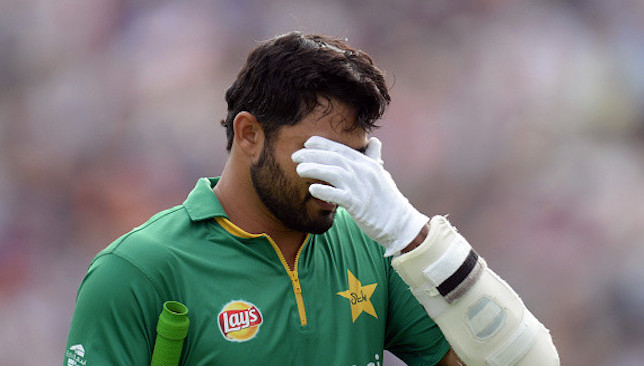
As good as Pakistan have been in Test cricket, their limited overs performance this year has been quite simply terrible. And it is not difficult to see why.
In Tests, they are ably led by the Misbah-ul Haq with veteran Younis Khan providing solidity in the middle order. Their experienced bowling line-up, led by Yasir Shah, has mastered the art of wearing down opposition with relentless accuracy and the team knows how to pace the game over five days and eke out positive results.
Sadly, that approach is totally outdated when it comes to limited overs cricket. It’s no wonder they have lost six out of seven ODIs and seven out of 11 Twenty20s in 2016. They have fallen 4-0 behind in the five-match series against England it seems only a miracle can save them from a whitewash.
Azhar Ali is the most stable batsman in Pakistan across formats and has proven himself in almost every condition and against top position. While his batting is not under scrutiny, his leadership looks too docile to engineer results in white ball cricket. Pakistan need someone closer to Imran Khan than Misbah to propel their ODI fortunes.
Then there is the issue of fitness. Sharjeel Khan is a sensation at the top of the order but it’s incredible to see an overweight batsman being the main weapon of a team. It just doesn’t send out the right signal.
Radical steps needed. It was brewing for sometime now n I was crying my lungs out. Batting needs to spruce up. Need to wake up for WC 2019.
— Shoaib Akhtar (@shoaib100mph) September 2, 2016
Also, in the fourth ODI, left-arm quick Mohammad Irfan walked off the field after bowling just five overs, complaining of cramps. This despite Irfan being on standby during the series.
It all comes down the brand of cricket a team adopts. It’s not as if Pakistan don’t have talented cricketers. That has never been the issue. But for them to drop to ninth position in ICC rankings shows that it’s their mindset which is the problem. And they only need to look at their opponents in the ongoing series to know that a revival is possible no matter how daunting the task might seem.
England were knocked out of the 2015 World Cup in Australia following a 15-run defeat to Bangladesh. It was a low point in the already disheartening landscape of limited overs cricket in England. That side had some solid names – Joe Root, Eoin Morgan, Chris Woakes, Alex Hales, Jos Buttler. But success eluded them.
Over the next season, England transformed the way they approached ODIs. James Anderson is not part of the limited overs set-up while Stuart Broad too has become mainly a Test bowler.
They are the best at what they do but it wasn’t enough for ODIs and England understood that. They brought in pacers suited for white ball cricket – like Liam Plunkett – and fine tuned their line up to have the best XI according to the situation.
England can now bring in an extra seamer or spinner because Moeen Ali does a good job with bat and ball. This allows them incredible flexibility and has seen them play with freedom. The batsmen are asserting themselves, spurred by the positive outlook of captain Morgan, and it is showing in the results.
The top four of England’s five best ODI scores – including two totals of more than 400 – were made after their World Cup exit.
England gave ODI cricket the respect and time it deserves, made plans specifically for it, identified players for the format and found the best positions for them and allowed the players to ‘express themselves’, as cricketers like to say.
It’s easier said than done but if England can do it in such a short span of time, Pakistan, who are already on top of the world when it comes to Test cricket, should be able to regain their spark.But for that, they need to give fitness the highest priority and ensure there is no space for any ‘defensive’ mindset, as England have done.
White ball cricket has moved along at break-neck speed and Pakistan can’t afford to stand still. If they do so, they will remain at the bottom of the pile.